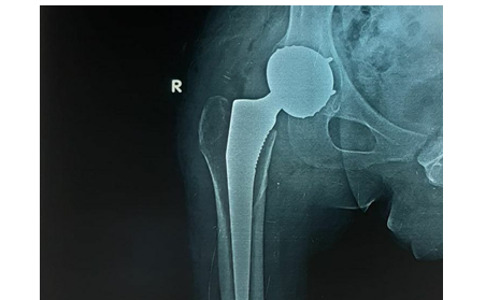
A new trial found that single-stage revision for prosthetic hip joint infection was not superior to the two-stage revision as per the outcomes reported by the patient. The trial results were published in the journal The BMJ.
Hip replacement surgery provides immense relief to patients with pain and disability caused by osteoarthritis or other hip conditions. The main complication of a prosthetic joint replacement is prosthetic hip joint infection. Most of the time prosthetic implant revision is done to relieve the symptoms. So, researchers conducted a pragmatic, parallel-group, open-label, randomized controlled trial to determine the patient outcomes after single-stage versus two-stage revision surgery for prosthetic hip joint infection and understand the cost-effectiveness of these procedures.
The trial was carried out from 1 March 2015 to 19 December 2018 at 12 high-volume tertiary referral centers or orthopedic units in the UK and 3 centers in Sweden. 140 adults who are aged ≥18 years with a prosthetic joint infection of the hip and required revision were enrolled in the study. By using the computer-generated 1:1 randomization list stratified by the hospital, 65 were randomly assigned to single-stage revision and 75 to two-stage revision. The primary intention-to-treat outcome was pain, stiffness, and functional limitations 18 months after randomization, measured by the Western Ontario and McMasters Universities Osteoarthritis Index (WOMAC) score. Secondary outcomes included surgical complications and joint infection. The economic evaluation compared quality-adjusted life years and costs between the randomized groups.
Results:
- The mean age of participants was 71 years and of these 51 (36%) were women.
- WOMAC scores did not differ between groups at 18 months; however, at 3 months, the single-stage procedure was better, but not great from six months onwards.
- 5 (8%) participants in the single-stage group and 20 (27%) in the two-stage group showed intraoperative events.
- Nine (14%) participants in the single-stage group and eight (11%) in the two-stage group had at least one marker of possible ongoing infection at 18 months.
- Single-stage revision was cost-effective from the perspective of healthcare providers and personal social services, with an incremental net monetary benefit of £11 167 at a £20 000 per quality-adjusted life years threshold.
Thus, the single-stage revision was not superior to the two-stage revision for the prosthetic hip joint at 18 months.
Further reading: Blom AW, Lenguerrand E, Strange S, et al. Clinical and cost-effectiveness of single stage compared with two-stage revision for hip prosthetic joint infection (INFORM): pragmatic, parallel-group, open-label, randomized controlled trial. BMJ. 2022;379:e071281. Published 2022 Oct 31. doi:10.1136/BMJ-2022-071281


